10:16
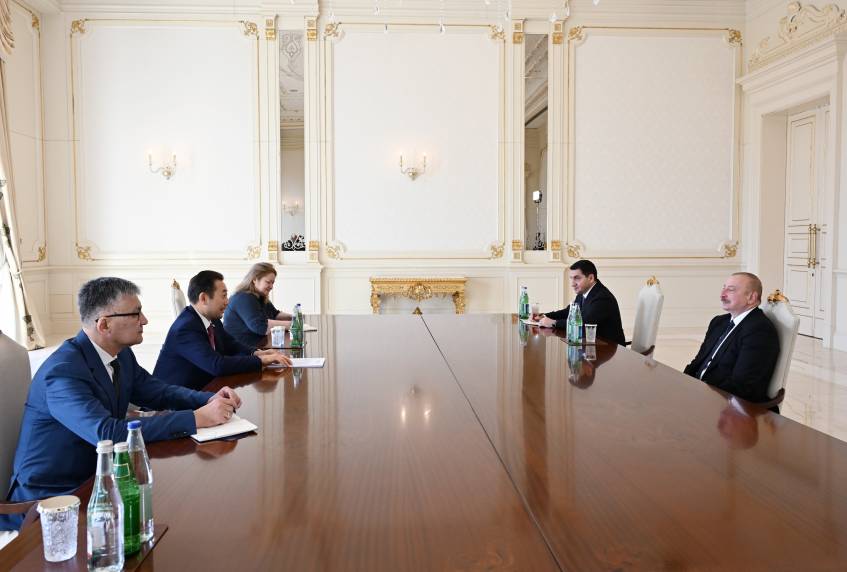
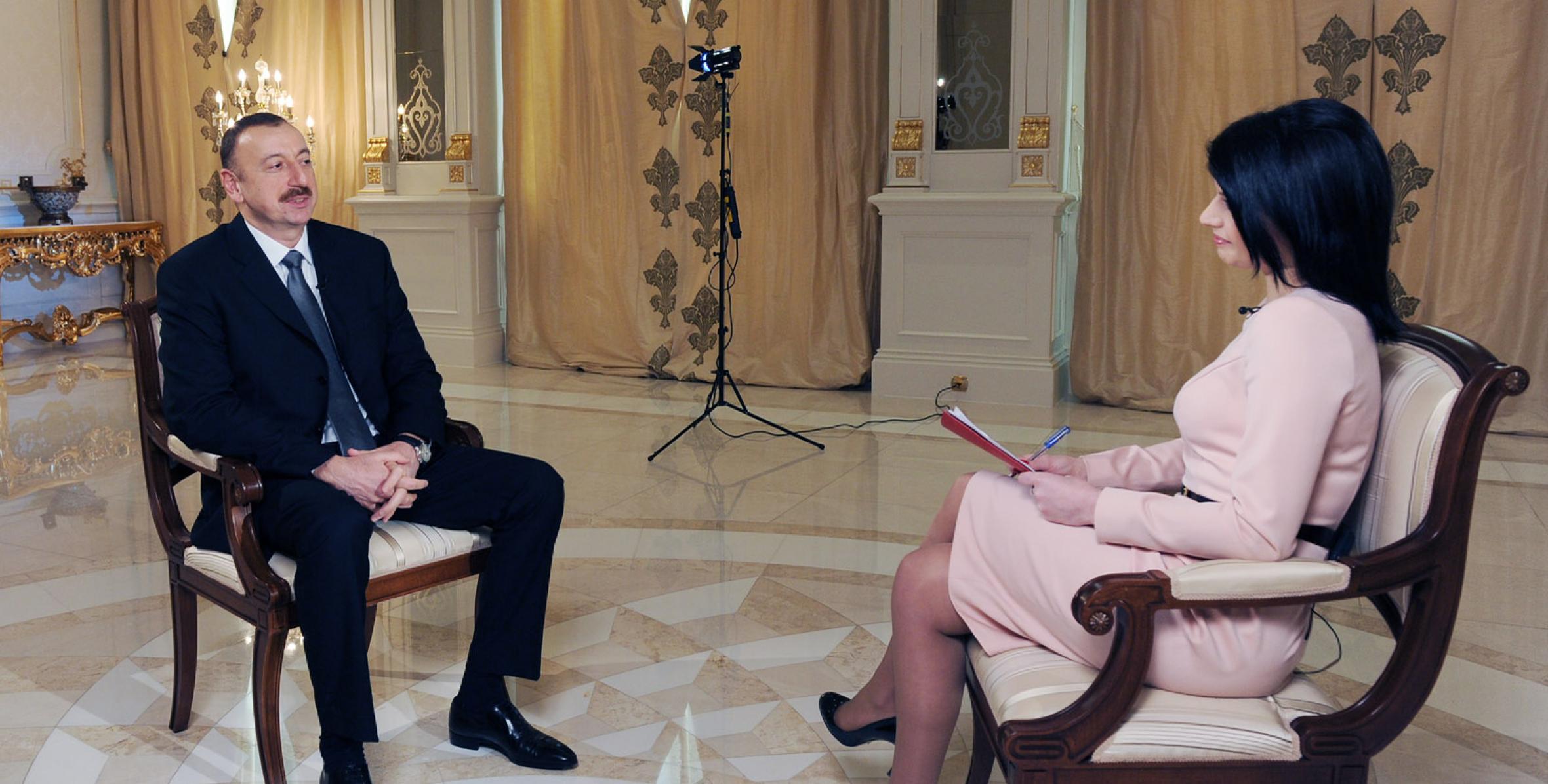
President Ilham Aliyev has given an interview to Russia-24 TV Channel of the All-Russian State Television and Radio Broadcasting Company
Good afternoon, Mr. President!
Good afternoon.
I would like to ask you about bilateral relations between Russia and Azerbaijan. They are developing quite successfully. Is there anything you would like to point out for yourself? What projects and activities are planned for this year?
Our relations are developing very dynamically, consistently and effectively. There is a very high level of political contacts between the heads of state, mutual visits are paid on a regular basis. We are in constant touch and make decisions that pay off. We, both sides, rightfully view our relations as ones between strategic partners. We are neighbors, we have always followed the principles of good neighborliness and friendship, we have lived together for centuries, and it is highly important that these positive trends have been preserved and multiplied in the period of formation of Azerbaijan as an independent state.
Our economic relations are strengthening. In the period of crisis, our turnover slightly dropped, but we are making up for that now and the structure of our turnover is improving. Russia is of great interest to us in terms of trade relations as it is a market for our goods. Russia is also our main partner in terms of imports. In other words, most of Azerbaijan’s imports are from Russia.
There are very good results in the humanitarian sphere. This year we will conduct the first international humanitarian forum in Baku at the initiative of the Russian and Azerbaijani presidents. The Russian-Azerbaijani humanitarian forum was held here last year, and the Russian intellectual elite came to Baku. There were good results.
There is a positive dynamics on all fronts. We are actively cooperating in the energy sphere now, our military and technical cooperation is developing successfully. These are the realities of recent years. In other words, we are determined to further strengthen our relations.
The document on the delineation of state borders is among the important documents signed recently. This is one of the most important documents for any country as it defines borders with neighbors, and these borders were determined on the basis of mutual interests and fairly. This agreement will further strengthen the bilateral relations between our countries and peoples. So there are no issues in our bilateral relations that would require urgent solution. Everything that should have been dealt with, I mean problematic issues, has been resolved. In the future we should step up the positive potential for our cooperation.
Azerbaijan’s economy has been developing quite well in the post-crisis period. You are demonstrating good results. Yet, you are saying that the investment environment should be improved. In fact, this issue is also in the focus in Russia, as solutions are being sought. Have you found one?
It is difficult for us to tell. Of course, the dimensions of Russia and Azerbaijan are incomparable. But the investment initiatives we have implemented in Azerbaijan have produced good results. First of all, we succeeded in attracting foreign investment, which was necessary for us in the early years of independence when all countries, I am talking about post-Soviet republics, were in a dire situation, the economy had collapsed, there were no domestic financial resources. Therefore, it would have been very difficult for us to develop without foreign investment. This is why we have implemented a specific program to attract foreign investment, primarily to the energy sector, and created favorable conditions for investors by fully securing their investments in a legislative manner. We are still seeing good results of this cooperation. In other words, the billions of dollars invested in the oil and gas sphere naturally led to a situation when funds were also invested in the service infrastructure, in accompanying sectors, in industry.
It is possible to day that at the current stage in the development of our country we don’t depend on foreign investment. At the same time, if we look at last year’s indicators, a total of $15.5 billion was invested in the economy, including $8 billion domestic and $7 billion foreign. So, despite the crisis, Azerbaijan is still attractive for foreign investors. First of all, as I have already mentioned, I think this is taking place because of a favorable investment environment in the country, protection of foreign investment, as well as the dynamic development of the country. Because foreign investment is made in places where there are specific results, where there is predictability, stability, where investors feel confident and know that no-one can alter the conditions of contracts that were signed perhaps 10-15 years ago.
We have established the state investment company which contributes 20 per cent to the country’s important investment projects, and this is also paying off. In the future, we, of course, expect to attract further investment but even if that doesn’t happen, the Azerbaijani economy has already gained momentum and will continue to develop dynamically.
The issue of the Nabucco gas pipeline is being actively discussed, and it is said that it is the Azerbaijani state that can resolve it. What decision will it take? Will the gas pipeline exist or not? This is a project alternative to Russia’s Southern Stream. Could you please provide a comment.
Considering the fact that Europe’s needs for gas are set to increase and there are practically no alternative sources, the interest of western partners is understandable, especially since Azerbaijan is not too far from European consumers geographically and there is already a gas pipeline that transports our gas to Turkey. So both the geography and the infrastructure precondition the interest in Azerbaijan as a potential supplier of gas.
As for our priorities, first of all we have tried to ensure our own energy security. As of today, I think we have reached maximum levels of production – a million barrels a day. In principle, we are quite pleased with this level as it enables a flow of financial resources into our economy so that we could deal with socioeconomic issues. Therefore, from this standpoint, there is no urgent need for financial resources, there is no such task. So we are viewing cooperation in the gas sphere as a long-term project which may be implemented if the interests of all sides overlap.
Today our gas potential is realized on the regional market. We are transporting gas and electricity to all neighboring countries – Russia, Turkey, Georgia, Iran. And there is a potential for increasing supplies in these traditional directions. So it is possible to say that we are marketing a certain share of our gas resources. At the same time, our capabilities and potential production and transportation volumes are much greater than regional markets. And in this case, of course, we have the task: either to access world markets or increase exports to traditional markets.
Expanding on your question on Nabucco, I can say that we support this project but on the basis of mutual interests. First of all, commercial interests must be secured, there must be a fair price. There are very many questions regarding the transit of our gas, what price the end-consumer will have, who will pay for the construction of the new gas pipeline, what role Azerbaijan will play as a transit country because it is clear that it will be impossible to fill Nabucco only with Azerbaijani gas. This means that gas from Central Asia will have to be engaged. Who will be dealing with commercial, technical issues, political negotiations? In other words, there are very many uncertainties and, at the same time, questions requiring solution.
However, the European Union and Azerbaijan signed a Declaration on the Southern transport corridor early this year. A joint working group led by our energy minister and the EU energy commissioner was established and consultations within the project framework commenced. It is not only Nabucco, there are several more, at least two more options that are currently under consideration. Therefore, if the talks are successful and all the interests are met, we will, of course, be interested in accessing yet another gas market. But that will depend on the outcome of talks and whether Azerbaijan’s interests are met.
Experts suggest that Caspian littoral states need distinct investment conditions. Why do you think there is still no integration? What has not been stipulated, what is required, what agreement should be reached?
We hosted a very successful summit of Caspian littoral states in Baku last year and made good decisions, primarily regarding bio-resources. We have instructed relevant agencies to develop a program on introducing a moratorium on sturgeon fishing. We have also issued explicit instructions on developing and agreeing issues relating to territorial waters in the near future. As for energy resources, all countries in this case are developing the fields in their respective national sectors of the Caspian, and this is more of a bilateral than a multilateral issue. But most importantly, we must resolve the Caspian status issue once and for all. It is still unresolved. But there is already a good foundation for that. Firstly, I am talking about the bilateral agreements signed between Russia and Azerbaijan, Russia and Kazakhstan, and Kazakhstan and Azerbaijan. So these three countries have agreed everything between themselves on the basis of international law. Therefore, if this approach is taken as a basis for the five-sided agreement, we can resolve Caspian issues in the shortest possible time.
At the same time, I have to say that even the present situation when the legal status remains unresolved is not an obstacle to the development of good-neighborly relations among Caspian littoral states. We are interested in seeing all coastal countries much more involved in integration processes, particularly as four out of five countries are former republics of the Soviet Union, countries of the CIS that are always in touch. I think we will gradually move in that direction. I view the Baku Caspian summit as an important and positive step forward.
Going back to the production of hydrocarbons and the fact that you are seeking new markets. Have you assessed the needs of Europe or some states to which your country may be delivering gas, say, in 2030? Maybe they won’t even need the raw materials?
Yes, we have certainly made such assessments. Of course, it is difficult to look ahead and predict what new energy types will emerge by 2030 given the fact that technical and scientific minds of Europe, so to speak, are now seeking alternative sources of energy. It is difficult to say how successful their researches will be, but if everything goes the same way and dependence on traditional sources of energy stays at the same level, the current level of gas supplies to Europe will not be sufficient. Although Europe’s biggest gas supplier, Russia, provides around 150 billion cubic meters a year, as far as I can remember, this volume won’t be enough for Europe. This is exactly why they are interested in additional sources now. Of course, it is difficult to tell or give an assessment and commentary on the reasons for the interest, say, in Azerbaijan and Central Asian republics, but I think they are governed more by pragmatism rather than political motivation. Because by 2030 Europe may experience a serious shortage of gas supplies and this will not only hamper economic development but can also lead to very serious consequences.
Therefore, when they look at the world’s energy map and see a country with vast, I would even say intact reserves of gas such as Azerbaijan – because Azerbaijan has traditionally produced oil and somehow gas was overshadowed by that – they naturally take interest. In this case, I think the best option would be a coordinated effort and joint activities by producers and consumers and, where necessary, transit countries, so that issues of gas cooperation do not cause unsound competition or confrontation. Producers must protect their interests. In this case, Russia and Azerbaijan, as producers and suppliers, certainly mind their interests, while consumers mind their own. It is necessary to bring all these interests to a common ground, achieve consensus and agree prospects for cooperation on the near bank. If this doesn’t happen, then different misunderstandings or inaccurate assessments may disrupt the picture of the energy cooperation. Because we think that everything must be explicitly defined in this business, and each party must know the extent of its obligations and interests in order not to snatch anything from under someone’s nose and not to restrain the development of its own potential and economy.
As far as Azerbaijan is concerned, I can tell you that 28 billion cubic meters of gas will be produced this year, of which 10-11 billion is domestic consumption, while the rest is our export resources. But since our exports are limited and due to the need for keeping up the pressure in the reservoirs, some of this gas is re-injected. This is why we have the resources that can already be claimed on gas markets. Also, with additional investment of around $20 billion we can ramp up gas production by around 15 billion, maybe even more. But to make this investment, we must have contracts, we must have markets because the gas business would be impossible without that. So everything is interconnected, and must be planned and agreed.
The situation in the Middle East, in Northern Africa has pushed up the oil price. How will you be using the revenue entering the state fund for the benefit of the country? On the one hand, if pensions and social benefits are raised, this will lead to a higher inflation, which is not very good. But on the other, of course, it is necessary to raise social benefits. What decision will be made in Azerbaijan?
We are regulating these issues quite effectively. Of course, we raise wages and pensions on an annual basis, and this process must be continued because even today the minimum wage and pension cannot please anyone. At the same time, over the last several years we have managed to tackle the problem of unemployment, 900,000 jobs were created in the last seven years. Also, we have reduced the level of poverty from 50 to 9 per cent in seven years. Nonetheless, I think 9 per cent is still too high. Therefore, social programs on raising wages and pensions will be continued, of course, as you have indicated, with due account for inflation risks. But in parallel with that, we are using oil revenue first of all for the development of infrastructure, creation of better conditions in our districts, construction of power stations, gas lines, hospitals, schools, roads, loans for businessmen. Every year we allocate large funds for the provision of the private sector with low-interest loans for several years. This leads to the opening of new jobs in districts, helps people earn money without receiving a salary but engaging in entrepreneurial activities.
We have significantly liberalized our economic policies. We have very liberal laws, no bureaucratic decisions are required to start a business. Anyone can register a company and start a business in a matter of three days I think. Moreover, as I have mentioned, the state encourages that by providing low-interest loans.
Another issue that has been on the agenda for 17 years. Nagorno-Karabakh. How do you assess prospects for its settlement and the role of mediators, including Russia of course?
We value the role of Russia very highly. President Dmitriy Anatolyevich Medvedev is making great effort to help the sides reach a settlement. Several trilateral meetings have been held on his initiative. They have been very important and have had a positive impact.
Unfortunately, the conflict has remained unresolved for many years, and we hope we can move forward in the near future. Although many years have elapsed and almost all international organizations have passed respective decisions and resolutions, the conflict remains unresolved. The UN Security Council has adopted four resolutions demanding withdrawal of the Armenian occupying forces from Azerbaijani territories, but none of them has been implemented. When we see that the execution of Security Council resolutions on Libya starts within hours of their adoption and those pertaining to Nagorno-Karabakh have remained on paper for 17-18 years, this brings up the question: why? What is the reason for such promptness and, in our case, such passiveness? Therefore, we are counting on a more active participation of mediators, first of all the countries co-chairing the Minsk Group, and Russia as a regional country, our neighbor, especially since Russia has been playing an active role lately.
Thank you very much for the interview.
Thank you.

Aleksandar Vučić, President of the Republic of Serbia, made a phone call to the President of the Republic of Azerbaijan Ilham Aliyev, on April 16, briefing him on the pressures Serbia has been encountering recently and requesting the support of the friendly...
16 April 2024, 20:36Dear Mr. Pellegrini,
I sincerely congratulate you on your election as the President of the Slovak Republic.
The development of friendly relations with Slovakia holds great significance for us. Currently, there are good opportunities for enriching the...
15 April 2024, 13:06Prime Minister Muhammad Shehbaz Sharif of the Islamic Republic of Pakistan made a phone call to President Ilham Aliyev of the Republic of Azerbaijan on April 9.
Pakistan's Prime Minister congratulated the head of state on the occasion of Eid al-Fitr and wished...
09 April 2024, 19:52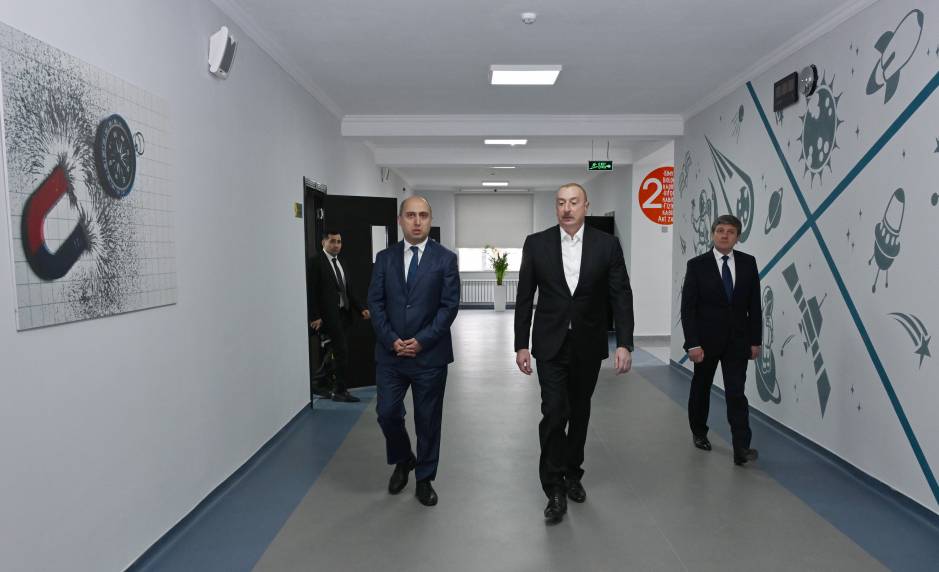
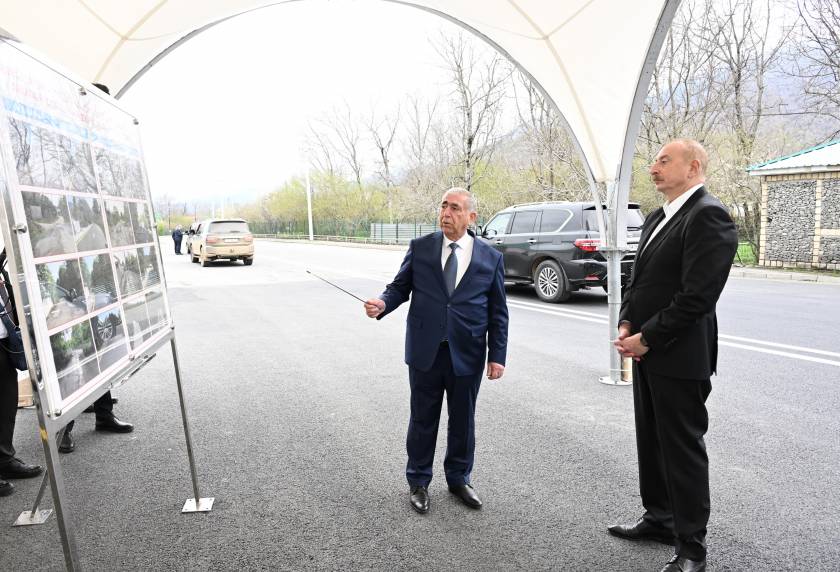
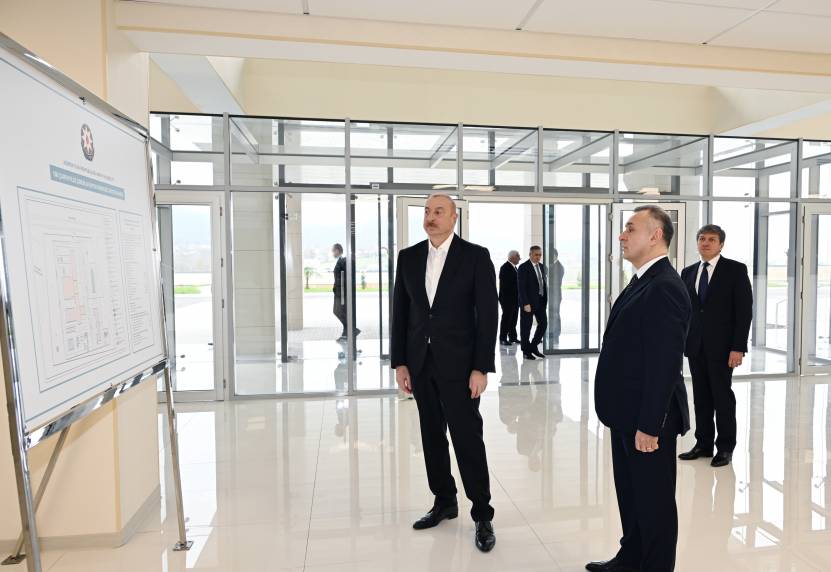
On April 9, President Recep Tayyip Erdogan of the Republic of Türkiye made a phone call to President Ilham Aliyev of the Republic of Azerbaijan.
The President of Türkiye congratulated President Ilham Aliyev on the occasion of Eid al-Fitr and wished the people of...
09 April 2024, 15:39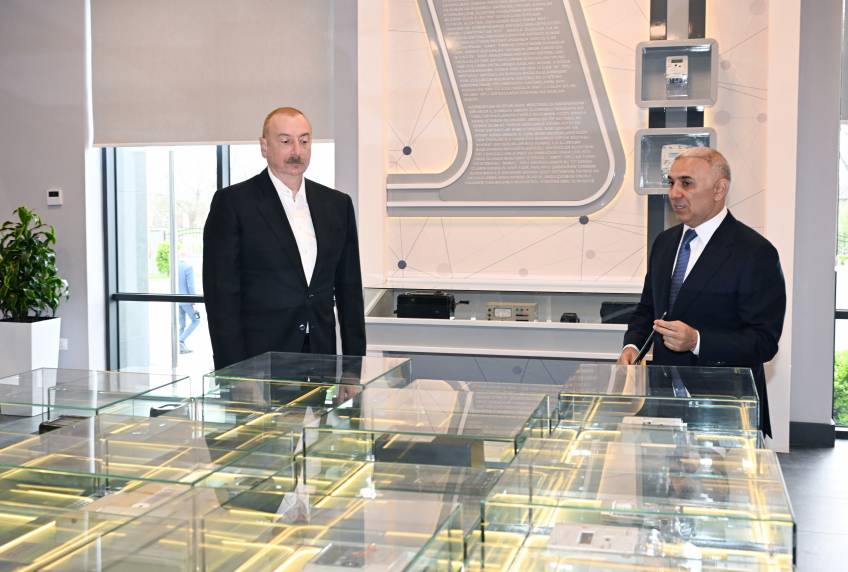
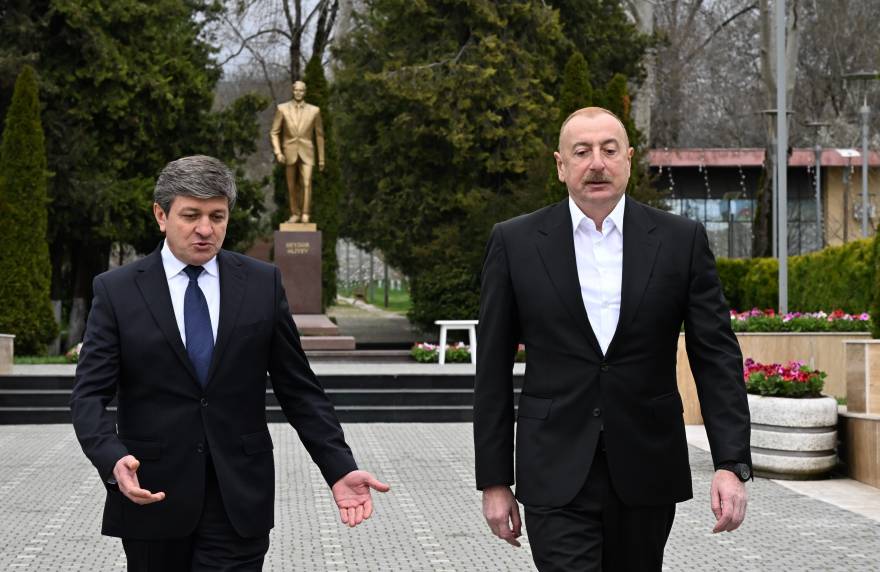
President of the Republic of Azerbaijan Ilham Aliyev has toured the Qabala district.
The head of state visited the monument to National Leader Heydar Aliyev erected in the city of Qabala and participated in the opening ceremonies of the 110/35/10 kV "Hajialili"...
09 April 2024, 15:14